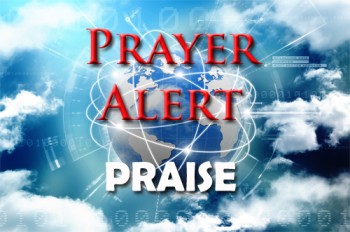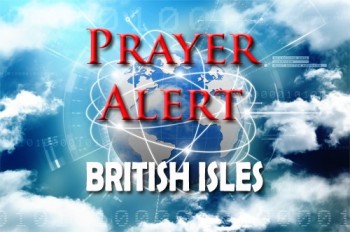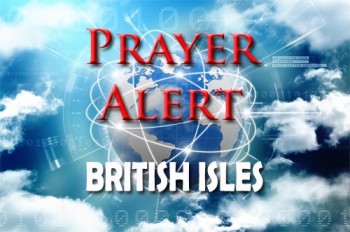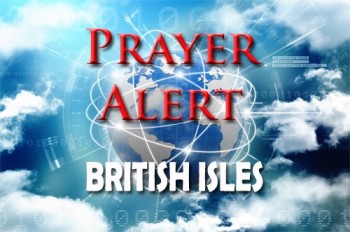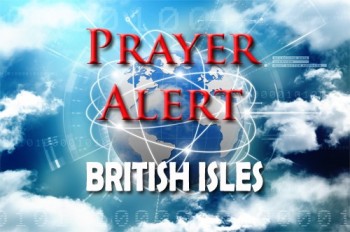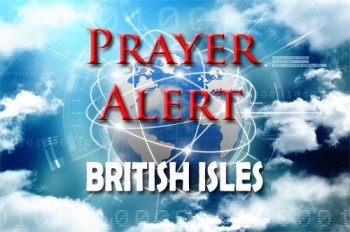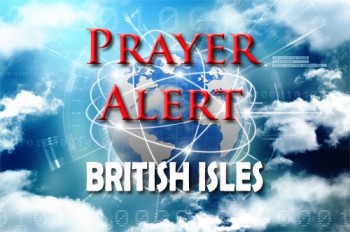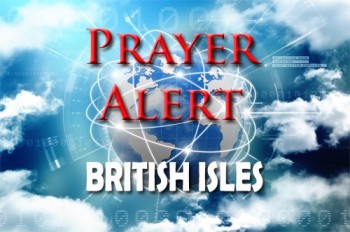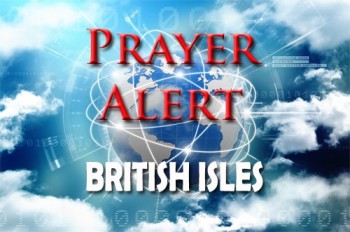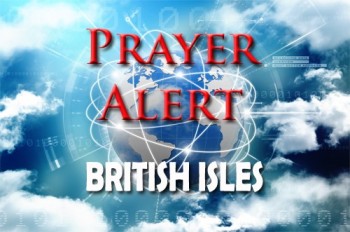Displaying items by tag: United Kingdom
Archbishop of Canterbury - praying in tongues and prophecy
Justin Welby has spoken of his daily discipline of praying in tongues and seeking words of knowledge and prophecy from others, in an interview with Premier at the launch of ‘Thy Kingdom Come’, now in its fourth year. He said, ‘It’s not something to make a great song and dance about. Usually it’s extremely early in the morning and not an immensely ecstatic moment.’ Speaking in tongues, words of knowledge, and prophecy are common practices in Pentecostal and charismatic churches. ‘Thy Kingdom Come’ has united over a million Christians from more than 65 different denominations and traditions, in 114 countries, to pray for evangelisation. During prayer times many noticed that God’s Spirit came.
J John: pray about Brexit
J John has recently commented: ‘However Brexit is resolved, it offers both encouragements and challenges to us who pray. Brexit is a symptom of a world that appears to have gone off-script. Many of the pillars of our world have either been destroyed or are shaking badly. Within a lifetime we have gone from a culture founded on solid Judeo-Christian values to one in which the only fundamental truth is that there is no truth. In the dysfunctional world we live in, prayer and praising remind us that, however spectacular the damage to these pillars is, they do not in fact hold up the world. Underneath and over this world is God, and he remains immovable. Psalm 11 says, “When the foundations are being destroyed, what can the righteous do? The Lord is in his holy temple; the Lord is on his heavenly throne.” Nothing has changed. Prayer reminds us that where the world sees only instability, we can focus beyond to eternal stability.’
Nationwide prayer for Christian unity and the political situation
From 20 January, Churches Together in Britain and Ireland (CTBI) joined in a week of prayer for Christian unity and dedicated prayer for the political situation in the UK. CTBI said, ‘This is a time in which many feel anger and anxiety over the future, and we need to pray that those who have the heavy burden of political leadership in our country may find a unity that brings our communities together in the task of serving the common good.’ Archbishop John Sentamu has encouraged everyone to pray three times a day, at 6am, 12 noon, and 6pm. He has written a special prayer to use: see
Parliamentary prayers argument
Conservative MP Crispin Blunt has tabled a motion for the tradition of saying prayers at the beginning of parliamentary business to be abolished. This call comes with the backing of eight other MPs and the National Secular Society (NSS). Mr Blunt, an honorary associate of NSS, stated on its website, ‘Whilst religious worship occupies a strong part in some people's lives, it should no longer play a role in the way we conduct our political affairs as an independent, open and diverse nation’. The House of Commons’ main daily prayer, first used in 1558, asks for God’s guidance so that MPs ‘never lead the nation wrongly through love of power, desire to please, or unworthy ideals’. Keith Vaz suggested an amendment to Blunt’s motion, resulting in the bill saying the opposite of its author’s intention: see
Violence against clergy
Among CofE clergy, one in ten have experienced violent behaviour in the last two years, and the same percentage are experiencing more hate crime than they did two years ago. Over 66% have received verbal abuse and one in five has experienced threatening behaviour. Most threats were to harm the cleric personally, but 20% had relatives threatened and 35% experienced threats to church property. 25% of cases were because they declined to give money to someone who asked them for it. Clergy who have suffered violence are likely to find their work ‘more challenging’ than they did previously. This situation has necessitated National Churchwatch to produce a personal attack alarm for clergy; it looks like an ID badge, but has a button on the back to press if they feel at risk or needs assistance. The button connects immediately to a control room which can monitor what is going on and call the police if necessary. See
Anti-Christian bias in government commission
Voice for Justice researchers note that some members of a new commission, whose task is to study extremism and report back to the Government, hold Christophobic and hostile views. The Commission for Countering Extremism will soon publish a wide-ranging study on ‘all forms of extremism’ that will include its scale, the tactics and objectives of extremists, the harm caused, and the nature of current response. It is an independent and impartial public body, and commissioners must ‘not participate in the discussion or determination of a matter where their interest might suggest a danger of bias’. However three members have publicly expressed views that place them in clear conflict with Government guidelines. Sara Khan: ‘If Christians must celebrate same-sex relationships, then atheists must celebrate Jesus Christ’; Peter Tatchell: ‘Menacing Christians are put in the same category as IS and Taliban’; Dame Louise Casey: ‘Pro-abortion and pro-LGBT relationships are tests of integration; Bible-believing Christians are less progressive.’
Scotland: evangelism
The Turning mission last August involved teams from many churches going out on the streets and sharing the gospel. This will start again on 2 February in Aberdeen, Edinburgh, and Glasgow, and will continue on the first Saturday each month, with churches sharing the Gospel and seeing people come to Christ. Last year, approximately 300 people made a commitment to the Christian faith. Plans are also being made for a further round of ‘Leaders Envisioning’ meetings in late February, aiming for new missions in August as The Turning is rolled out across Scotland. Organisers have also produced The Turning Bible which helps those who have responded on the streets to understand the Word of God as they begin their journey of faith. This version is easy to read and understand, using everyday language, and is perfect for reading aloud. See
Farage to lead new Brexit party if departure delayed?
Nigel Farage could become leader of a new pro-Brexit party if Britain’s departure from the EU is delayed beyond 29 March. The former UKIP leader said he had offered his enthusiastic support to the Brexit party after being sounded out as its potential leader. Catherine Blaiklock, formerly a spokeswoman for UKIP, confirmed that on 11 January she had applied to register the party with the Electoral Commission. It would be ready to fight any snap general election, or the local elections across England in May. She said, ‘I think people feel treason has been committed. It’s democracy. It wouldn’t matter whether Leave had won by a single vote - it’s a first-past-the-post system.’ The party would aim to attract the 17.4 million people who voted to leave in 2016, and to win over defectors from the Conservatives, Labour, and UKIP.
Brexit deadlock and God’s purposes
‘Father, help us to resist the destructive ploys of the enemy to divide our nation. Give Your strength and peace to our politicians. Give fresh anointing to our government as they carry the mantle for running the country and banish confusion and fear from parliament, replacing it with wisdom from heaven as decisions are made on behalf of the people. Establish your purpose and direction for our nations in the coming weeks. Amen’. On 17 January our newspapers led with news of the Brexit deadlock. While all agree there is political chaos, they disagree about who is to blame: is it Theresa May, Jeremy Corbyn or MPs in general? The Guardian said that despite surviving a dramatic no-confidence vote, Mrs May was left scrambling to strike a Brexit compromise, and Tory MPs remain deeply divided about how she should adapt her deal.
CofE representative doesn’t believe in resurrection
Senior Anglicans are asking the Archbishop of Canterbury to force his ambassador to the Vatican to resign because he does not believe Jesus rose from the dead. In an Easter sermon some years ago Dr John Shepherd said, ‘It is important for Christians to be set free from the idea that the resurrection was an extraordinary physical event, which restored to life Jesus’s original earthly body. The resurrection of Jesus ought not to be seen in physical terms, but as a new spiritual reality.’ He added that the disciples merely ‘felt his presence after his death’, and the Gospel accounts in the Bible were not historical records as we would write history today. Senior Anglicans have rounded on his unorthodox views. Dr Shepherd’s appointment came after the previous ambassador stood down following accusations of sexual misconduct.
